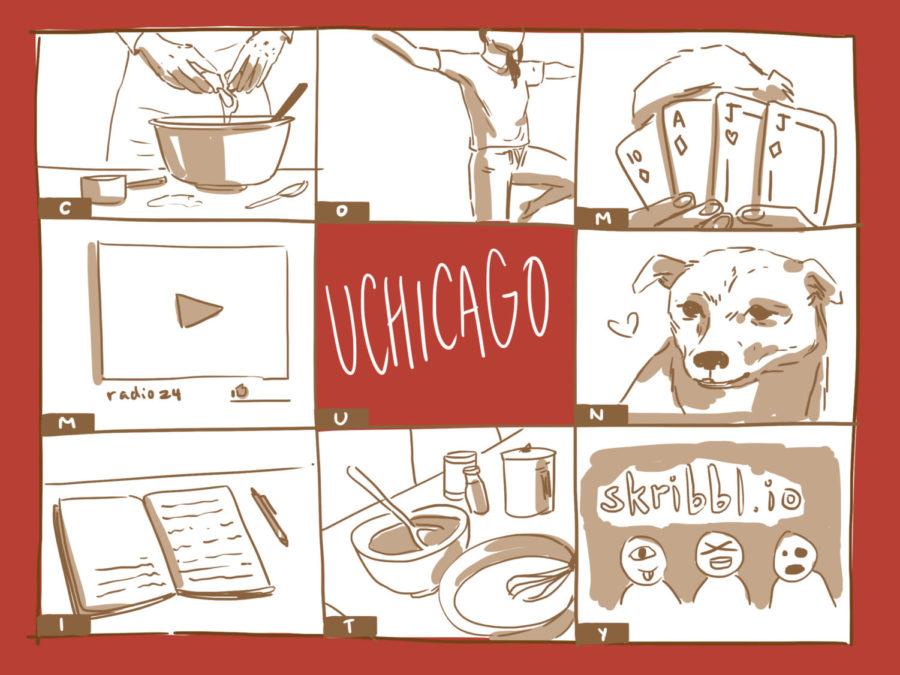Up until recently, a question had been on my mind that I assume has been on many others’ as well. How do we sustain the UChicago community during this time of crisis and social distancing? However, in the past week I realized I was asking the wrong question, because the UChicago community as we knew it no longer exists. Not to be discouraging, but it is impossible to feign a sense of normalcy when our situation is so abnormal. UChicago students have a new lens through which to view the world because of the COVID-19 pandemic, which reflects how our social identity has been altered by this crisis. I won’t try to speak for others, but I know that my individual identity has changed. Since the UChicago community is fundamentally different due to this crisis, we cannot have expectations of a return to what was previously considered “normal”— rather we need to adapt and grow to sustain our new community and prepare for the eventual return to campus.
In terms of how our community is objectively different now, members are experiencing extreme hardship and loss, whether that be in the form of their own physical health, the well-being of their loved ones, financial strain, or the beginning of a mental health crisis. The University has made impressive efforts to be accommodating by allowing for a flexible pass/fail option for students through petition. However, many students are concerned about how the decision to take classes pass/fail this quarter will impact future employment or graduate school applications. Furthermore, the pass/fail policy is not uniform across all the departments—some have placed limits on the number of pass/fail classes that may count towards a major. Giving students the option to deviate from the norm by taking courses pass/fail while their peers opt for quality grades does not contribute to our collective unity, but rather further isolates already-struggling individuals. The “Life of the Mind” pales in comparison with actual lives.
The success of some efforts to adapt to new barriers, and the failure of others, is evidence that new approaches are required across the board. Before the first day of classes this quarter, Dean Boyer addressed the College through video. He referred to the importance of maintaining the UChicago community, offering advice such as having virtual house and RSO meetings, and staying in touch with friends through virtual get-togethers. This is all actually great advice to maintain meaningful connections, yet realistically it is limited by different time zones, technology limitations, and unforeseen issues related to the pandemic. To state the obvious, not every activity can easily be transitioned to Zoom, and the quality of the ones that can are seriously diminished. Some extracurricular activities, like club sports, are impossible now. Furthermore, a lot of RSOs seem to be taking a step back this quarter and not meeting virtually at all.
Fortunately, that’s not the case across the board. Maya, a dance organization on campus, has been publishing routines made in social isolation on their YouTube channel, Theater [24] showcased their work this quarter in a performance deemed “Radio [24]”, and The Maroon and other student-run publications are continuing to put out pieces online. Staying connected to UChicago and other students in this manner does help foster a sense of community. However, rather than represent a continuation of the past, replicating the lives we led on campus, these are evolutions of the microcommunities within the larger student body, adapted to our new reality. The creative drives are the same, but the artistic and social expression that follow are innovative. These new discoveries represent the changes that have occurred in the world and the ways we connect as people. In this evolution of RSO meetings, student performances, and school publications, we can see not a replication of UChicago’s on-campus culture, but instead the creation of something new and uniquely suited to our circumstances.
Clearly, the UChicago community changed during this pandemic, but it would be folly to assume that these changes will vanish when students eventually return to campus. After the pandemic, the school’s dynamics will be different—it will be impossible to return to how things were before. Considering this, the University needs to proactively address issues that may arise. Before COVID-19, due to the intense academic rigor of UChicago, many students already faced mental health challenges. The University needs to consider how they are going to accommodate for the increased need for mental health services in the wake of a global crisis. This could mean restructuring academic demands, increasing the availability of support services, and taking extra safety precautions within the dorms as people return from all over the world. Additionally, the administration needs to create a plan for the reality that many of its students may be in a much harder position financially to afford tuition and other payments. This could mean more on-campus employment opportunities, financial aid, and reconsideration of the requirement for students to live on campus for two years rather than one, which often ends up being more expensive than off-campus housing.
The COVID-19 pandemic has changed the world and our community at UChicago. What we need to focus on now is how to strengthen ourselves anew and grow our support systems. Nothing about this situation is easy or straightforward and so much that occurs is out of our power. It's tempting to spend our time and energy clinging to normalcy, trying to perfectly replicate the UChicago we once knew. However, we must take inspiration from our mascot, the phoenix, who rises from ash to be born anew. We have the potential to consciously influence how we rebuild as a community once the virus is under control. The nature of our resilience will define UChicago’s character forever.
Sylvia Ebenbach is a second-year in the College.








